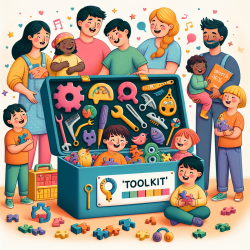As a practitioner working with adolescents who have Developmental Language Disorder (DLD), you’re likely familiar with the challenges they face, including increased risks of anxiety and depression. However, a recent study published in the International Journal of Environmental Research and Public Health offers valuable insights that can help you enhance your therapeutic approach.
The study, titled Social Functioning as a Mediator between Developmental Language Disorder (DLD) and Emotional Problems in Adolescents, highlights the critical role that social functioning plays in mediating emotional problems in adolescents with DLD. By understanding and implementing these findings, you can significantly improve the well-being of your students.
Key Findings
The research reveals several important points:
- Adolescents with DLD often face significant peer problems, which can exacerbate emotional difficulties such as anxiety and depression.
- Parent-reported peer problems accounted for 69% of the relationship between DLD status and emotional problems.
- Improving social functioning could potentially alleviate emotional problems in this population.
Practical Applications
Here are some strategies you can implement based on the study's findings:
- Enhance Social Skills Training: Focus on activities that improve social interactions, such as role-playing scenarios and group discussions. This can help adolescents with DLD develop better social skills and reduce peer problems.
- Parental Involvement: Encourage parents to be actively involved in their child’s social development. Educate them about the importance of fostering positive peer relationships and provide them with strategies to support their child.
- Create Supportive Environments: Foster an inclusive classroom environment where all students feel valued and supported. Promote activities that encourage teamwork and peer support.
- Monitor Emotional Well-being: Regularly check in with students to assess their emotional state. Early identification of emotional problems can lead to timely interventions.
Encouraging Further Research
While the study provides valuable insights, it also opens the door for further research. Encourage your colleagues and students to explore this area more deeply. Understanding the nuances of how social functioning impacts emotional well-being in adolescents with DLD can lead to even more effective interventions.
To read the original research paper, please follow this link: Social Functioning as a Mediator between Developmental Language Disorder (DLD) and Emotional Problems in Adolescents.










